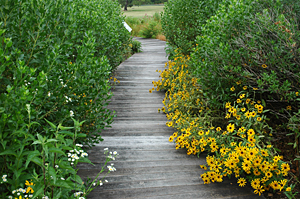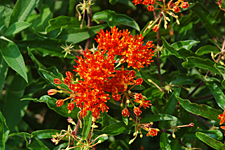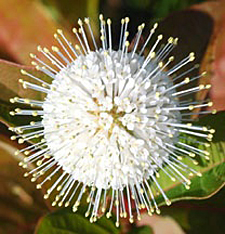
- Rozovsky wins prestigious NSF Early Career Award
- UD students meet alumni, experience 'closing bell' at NYSE
- Newark Police seek assistance in identifying suspects in robbery
- Rivlin says bipartisan budget action, stronger budget rules key to reversing debt
- Stink bugs shouldn't pose problem until late summer
- Gao to honor Placido Domingo in Washington performance
- Adopt-A-Highway project keeps Lewes road clean
- WVUD's Radiothon fundraiser runs April 1-10
- W.D. Snodgrass Symposium to honor Pulitzer winner
- New guide helps cancer patients manage symptoms
- UD in the News, March 25, 2011
- For the Record, March 25, 2011
- Public opinion expert discusses world views of U.S. in Global Agenda series
- Congressional delegation, dean laud Center for Community Research and Service program
- Center for Political Communication sets symposium on politics, entertainment
- Students work to raise funds, awareness of domestic violence
- Equestrian team wins regional championship in Western riding
- Markell, Harker stress importance of agriculture to Delaware's economy
- Carol A. Ammon MBA Case Competition winners announced
- Prof presents blood-clotting studies at Gordon Research Conference
- Sexual Assault Awareness Month events, programs announced
- Stay connected with Sea Grant, CEOE e-newsletter
- A message to UD regarding the tragedy in Japan
- More News >>
- March 31-May 14: REP stages Neil Simon's 'The Good Doctor'
- April 2: Newark plans annual 'wine and dine'
- April 5: Expert perspective on U.S. health care
- April 5: Comedian Ace Guillen to visit Scrounge
- April 6, May 4: School of Nursing sponsors research lecture series
- April 6-May 4: Confucius Institute presents Chinese Film Series on Wednesdays
- April 6: IPCC's Pachauri to discuss sustainable development in DENIN Dialogue Series
- April 7: 'WVUDstock' radiothon concert announced
- April 8: English Language Institute presents 'Arts in Translation'
- April 9: Green and Healthy Living Expo planned at The Bob
- April 9: Center for Political Communication to host Onion editor
- April 10: Alumni Easter Egg-stravaganza planned
- April 11: CDS session to focus on visual assistive technologies
- April 12: T.J. Stiles to speak at UDLA annual dinner
- April 15, 16: Annual UD push lawnmower tune-up scheduled
- April 15, 16: Master Players series presents iMusic 4, China Magpie
- April 15, 16: Delaware Symphony, UD chorus to perform Mahler work
- April 18: Former NFL Coach Bill Cowher featured in UD Speaks
- April 21-24: Sesame Street Live brings Elmo and friends to The Bob
- April 30: Save the date for Ag Day 2011 at UD
- April 30: Symposium to consider 'Frontiers at the Chemistry-Biology Interface'
- April 30-May 1: Relay for Life set at Delaware Field House
- May 4: Delaware Membrane Protein Symposium announced
- May 5: Northwestern University's Leon Keer to deliver Kerr lecture
- May 7: Women's volleyball team to host second annual Spring Fling
- Through May 3: SPPA announces speakers for 10th annual lecture series
- Through May 4: Global Agenda sees U.S. through others' eyes; World Bank president to speak
- Through May 4: 'Research on Race, Ethnicity, Culture' topic of series
- Through May 9: Black American Studies announces lecture series
- Through May 11: 'Challenges in Jewish Culture' lecture series announced
- Through May 11: Area Studies research featured in speaker series
- Through June 5: 'Andy Warhol: Behind the Camera' on view in Old College Gallery
- Through July 15: 'Bodyscapes' on view at Mechanical Hall Gallery
- More What's Happening >>
- UD calendar >>
- Middle States evaluation team on campus April 5
- Phipps named HR Liaison of the Quarter
- Senior wins iPad for participating in assessment study
- April 19: Procurement Services schedules information sessions
- UD Bookstore announces spring break hours
- HealthyU Wellness Program encourages employees to 'Step into Spring'
- April 8-29: Faculty roundtable series considers student engagement
- GRE is changing; learn more at April 15 info session
- April 30: UD Evening with Blue Rocks set for employees
- Morris Library to be open 24/7 during final exams
- More Campus FYI >>
9:46 a.m., March 17, 2009----The University of Delaware's native plant demonstration garden has received a landscape design award from the Delaware Nursery and Landscaping Association.
The garden is located at the College of Marine and Earth Studies' Hugh R. Sharp Campus in Lewes. It was created in 2004 by the Delaware Sea Grant College Program, the University of Delaware and the Partnership for the Delaware Estuary to demonstrate how coastal Delaware residents can include native plants in their home gardens.
“People weren't familiar with the color, shape, texture and variety that natives can bring to a home landscape,” said Wendy Carey, coastal processes specialist with Delaware Sea Grant. “You can go native and still have a beautifully landscaped yard.”
At the project's outset, Carey turned to UD alumnus Christopher Valenti, owner of JB Landscaping in Lewes, for help with design. Valenti developed the initial landscape design and continues to collaborate on the garden's layout and upkeep.
It was the garden's outstanding landscape design that the Delaware Nursery and Landscape Association recognized. The group is a nonprofit that serves the state's horticultural-related businesses and the companies that supply them.
Thousands of people have visited the garden, whether through guided tours at the University's annual Coast Day event or through free self-guided tours throughout the year.
Visitors learn that native plantings are attractive alternatives to traditional nursery stock because they require little maintenance and are specifically adapted to heat, drought and soil stresses common to coastal areas. Native plants also provide important feeding, nesting, and resting habitat for many birds and animals and can add variety to a garden, creating a compatible extension of the natural ecosystem.
A wooden path and informational brochures and signage help guide visitors through the garden. White rose mallows, blue mistflowers, red chokeberry, and many other plants bloom throughout the growing season. Natural coastal Delaware ecosystems such as a meadow, woodland, a freshwater wetland and a dune system are modeled throughout the garden, as well.
Additional support for the project has been provided by the Delaware Department of Natural Resources and Environmental Control, the U.S. Fish and Wildlife Service, the Sussex Conservation District, Cape Henlopen High School and North Creek Nurseries.
Article by Elizabeth Boyle




